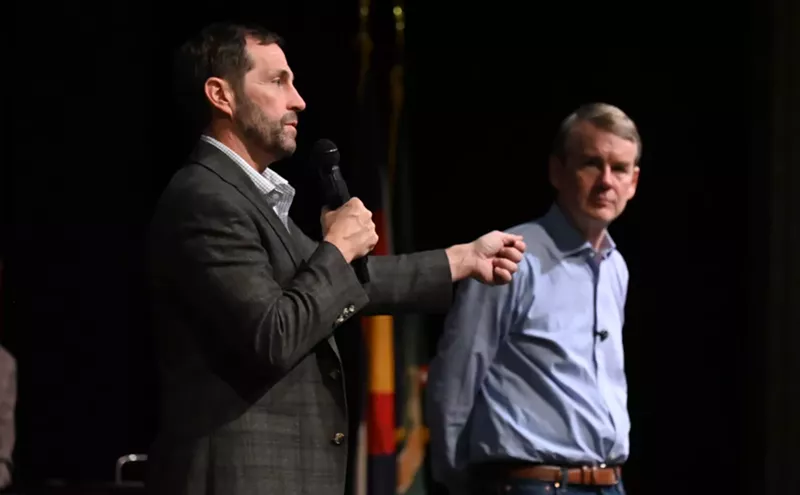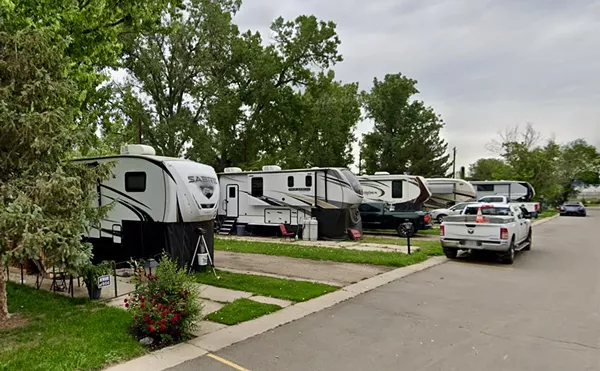This time, Iversen is a winner in the general non-fiction category -- and Full Body Contact is much more than a memoir. It's chock-full of science and political history and documents (many of which you can find on her website, kristeniversen.com), as well as personal reminiscences.
Iversen's family had moved into a brand-spanking-new Arvada development in the late '60s, right before the 1969 fire at the Rocky Flats Nuclear Weapons Plant sent a "cloud of plutonium passing over us at our Mother's Day brunch," she recalls. But her family didn't know what was in that cloud for decades.
Today, Iversen is a professor at the University of Memphis. After working for a time at Rocky Flats, she went on to get her Ph.D. from the University of Denver and write her book on Molly Brown. After that, she decided to tackle Rocky Flats, the federal facility built just sixteen miles upwind of Denver in the early '50s, which produced plutonium triggers for nuclear bombs for more than three decades, until the feds finally shut it down after the facility was raided by the FBI in June 1989.
It took Iversen ten years to complete Full Body Burden. The book was published a year ago by Crown, then picked up by a British publisher; the paperback edition just came out at the beginning of the month.The modest initial book tour that Crown had planned for Iversen has grown into presentations and readings in more than twenty states and three countries, with many more to come. Iversen has spoken to entire university classes -- whose members are assigned to read Full Body Burden for orientation -- and on the steps of the Capitol in Washington, D.C. Later this summer, she'll be a featured author at the Edinburgh International Book Festival.
"It's personal," she says of the book, in a piece that aired on Humanities Tennessee this month. "It's controversial. Sometimes funny, often dark, it tells a hidden, secret side of American history and how that history affected the lives of individual people -- that is, me -- as well as my parents, my siblings, and our horses and dogs and cats. Not to mention our neighbors and everyone else living in the area. Few people know the story and devastating legacy of the secret Rocky Flats Nuclear Weapons Plant, just down the road from my family's home near Denver. Now they know."
More from the Calhoun: Wake-Up Call archive: "A century and a half later, the wounds of Sand Creek are still fresh."












